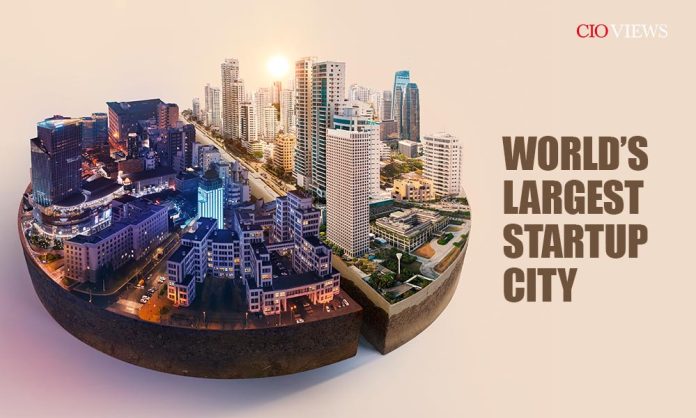Startups no longer grow in garages. They rise in cities built to accelerate innovation.
Today’s top startup city does more than provide co-working spaces – it offers an entire ecosystem that fuels ambition, investment, and scale.
In this post, we reveal the city that leads the world in startup success, and why its ecosystem has become the gold standard.
What Defines a Startup City?
Not all cities are created equal when it comes to entrepreneurship.
Some offer ideal market conditions, others provide capital. But the best offer everything—from skilled talent to global exposure.
A startup city must enable companies to launch quickly, grow steadily, and scale globally. The foundation lies in access: to capital, networks, infrastructure, and top talent.
Cities competing for this title must also foster a culture of innovation—one that encourages failure, experimentation, and fast execution.
In 2025, competition is fierce. Cities like San Francisco, Tel Aviv, Bangalore, Berlin, and Singapore continue to push boundaries.
But only one offers the perfect combination of speed, support, and scalability.
Key Metrics That Matter
-
Startup Funding Volume
-
Number of Unicorns Created
-
Ease of Doing Business
-
Tech Talent Density
-
Cost of Living vs. Growth Rate
-
Global Reach of Local Startups
These indicators separate contenders from champions.
Why Location Impacts Success
Location determines:
-
Investor access
-
Hiring pipelines
-
Regulatory speed
-
Industry-specific clusters
A startup in the right environment can compress 10 years of growth into 2.
The World’s Leading Startup City in 2025
Bangalore, India tops the charts in 2025.
With unmatched talent availability, a booming SaaS ecosystem, affordable cost structures, and a sharp rise in venture capital funding, Bangalore has overtaken San Francisco as the world’s most efficient startup engine.
It has produced more unicorns in the last 24 months than any other city, according to CB Insights and Crunchbase data.
Startups here benefit from:
-
Massive English-speaking tech workforce
-
Mature B2B and SaaS ecosystems
-
Robust early-stage funding environment
-
Strong support from both local and national governments
This city is no longer the Silicon Valley of India. It’s the Startup Superpower of the world.
Why Bangalore Ranks #1
Infrastructure & Investment Ecosystem
Bangalore has built specialized zones like Whitefield and Electronic City, with co-working hubs, data centers, and seamless logistics support.
Venture capital is abundant. Firms like Accel, Sequoia, and Tiger Global are hyperactive here.
In 2024 alone, Bangalore startups raised over $20 billion.
From seed to Series C, funding is fast, and exits are frequent.
Talent & Innovation
India produces over 1.5 million engineering graduates yearly—Bangalore attracts the best.
The city’s talent pool blends deep tech, product, and business skills, creating cross-functional founding teams.
AI, fintech, healthtech, and B2B SaaS dominate its innovation map.
Global companies set up R&D centers here to tap into the local genius.
Government & Private Support
India’s “Startup India” and Karnataka’s local schemes offer:
-
Tax breaks
-
Easier compliance
-
Startup grants
-
Incubator and accelerator networks
Private companies such as Infosys, Wipro, and Flipkart support startups through programs and funding.
Real Success Stories from the City
-
Razorpay: Fintech unicorn simplifying online payments for Indian businesses
-
Groww: Investment platform with 35M+ users and expanding globally
-
Freshworks: From Chennai, scaled in Bangalore, now NASDAQ-listed
-
Meesho: Social commerce pioneer backed by Meta, redefining e-commerce
These startups went from seed to scale powered by Bangalore’s ecosystem.
Each story shows how the city enables founders to go big, fast.
How Startups Thrive Here
Startups in Bangalore benefit from:
-
Dense founder communities: Ideas cross-pollinate fast
-
Access to mentors: Founders help each other grow
-
Events & pitch nights: Constant exposure to VCs
-
Tech-savvy user base: Early adopters for testing products
-
Affordable burn rate: Lower costs mean longer runways
It’s a city where a good idea meets the right people at the right time.
Challenges the City Faces
Despite growth, Bangalore isn’t perfect.
-
Traffic congestion delays productivity
-
Infrastructure strain due to rapid growth
-
Air pollution impacts health and livability
-
Water management issues could worsen with urban sprawl
However, the local government is actively investing in smart city initiatives, metro rail expansions, and sustainability programs.
These challenges are being addressed but they require sustained effort.
What Other Cities Can Learn
Bangalore’s rise offers a blueprint:
-
Invest in education and digital literacy
-
Create flexible startup policies
-
Enable access to global capital
-
Support local incubators and accelerators
-
Celebrate risk-taking and innovation
Cities that want to be startup hubs must build ecosystems that go beyond vanity rankings they must deliver real value to founders.
Bangalore didn’t win by chance. It won by design.
Read how Mary Snell Turns Over a New Leaf





